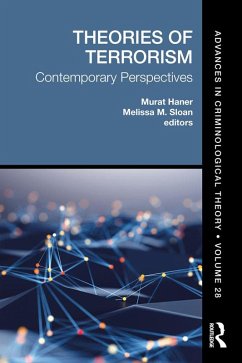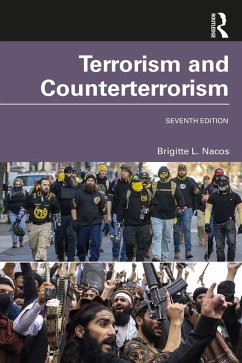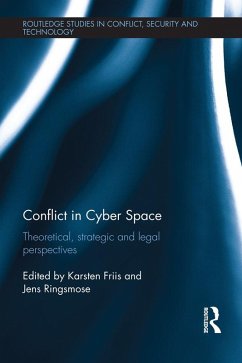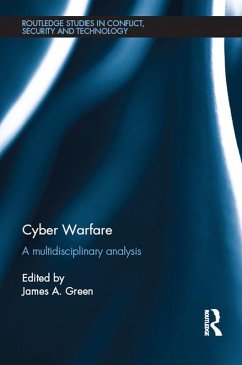
Terrorism in the Twenty-First Century (eBook, PDF)
Versandkostenfrei!
Sofort per Download lieferbar
81,95 €
inkl. MwSt.
Weitere Ausgaben:

PAYBACK Punkte
41 °P sammeln!
Terrorism in the Twenty-First Century helps readers understand terrorism, responses to it, and current trends that affect the future of this phenomenon. Putting terrorism into historical perspective and analysing it as a form of political violence, this text presents the most essential concepts, the latest data, and numerous case studies to promote effective analysis of terrorist acts. Terrorism in the Twenty-First Century objectively breaks down the who-what- why-how of terrorism, giving readers a way both to understand patterns of behavior and to more critically evaluate forthcoming patterns...
Terrorism in the Twenty-First Century helps readers understand terrorism, responses to it, and current trends that affect the future of this phenomenon. Putting terrorism into historical perspective and analysing it as a form of political violence, this text presents the most essential concepts, the latest data, and numerous case studies to promote effective analysis of terrorist acts. Terrorism in the Twenty-First Century objectively breaks down the who-what- why-how of terrorism, giving readers a way both to understand patterns of behavior and to more critically evaluate forthcoming patterns.
New to the Ninth Edition:
New to the Ninth Edition:
- Uses a key contemporary challenge of terrorism-the emerging radicalization via social media platforms-as a thread to link its chapters, especially in terms of domestic terror threats and the rise of the far right in the US and abroad.
- Discusses the evolving "fifth wave" of modern terrorism, linking and radicalizing groups and individuals in all parts of the globe, recruiting individuals for terrorist acts in their own states and drawing them into international confrontations.
- Compares the profile of domestic extremists over time up to the Capitol rioters of January 2021.
- Includes new and updated case studies on a wide variety of terror phenomena including the Covid-19 pandemic, Q'Anon, the Boogaloo Movement, the Proud Boys, and the War on Terror in Afghanistan, Iraq, and Syria, among several others.
Dieser Download kann aus rechtlichen Gründen nur mit Rechnungsadresse in A, B, BG, CY, CZ, D, DK, EW, E, FIN, F, GR, HR, H, IRL, I, LT, L, LR, M, NL, PL, P, R, S, SLO, SK ausgeliefert werden.













